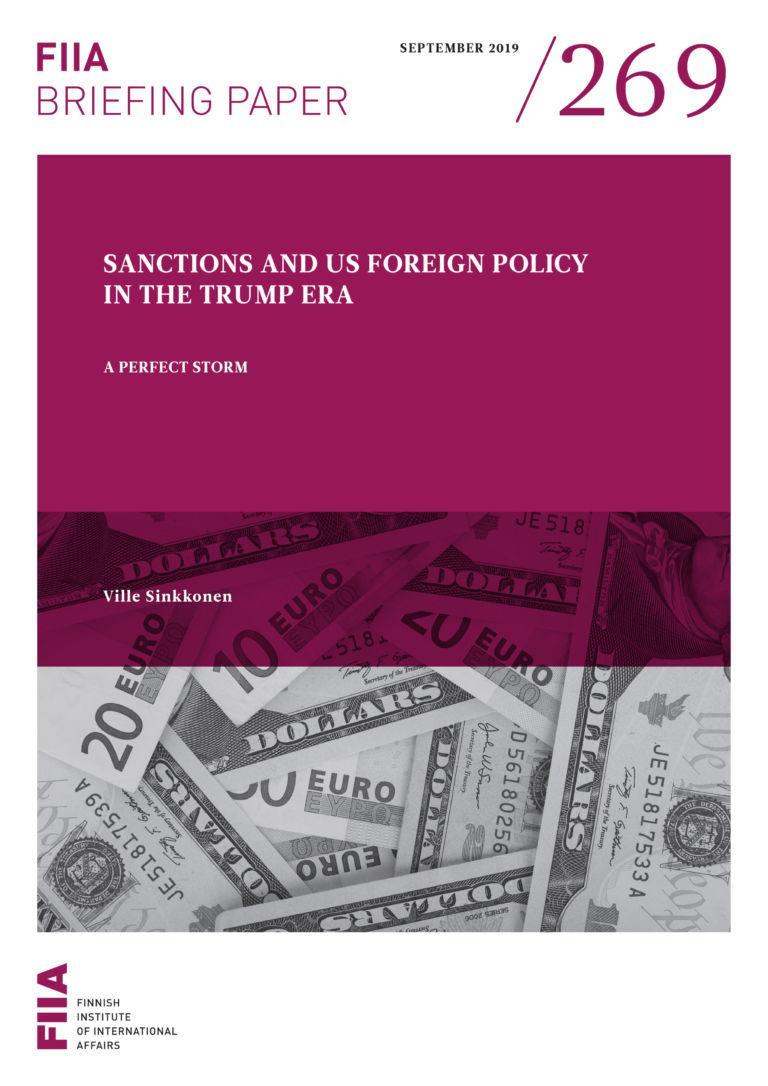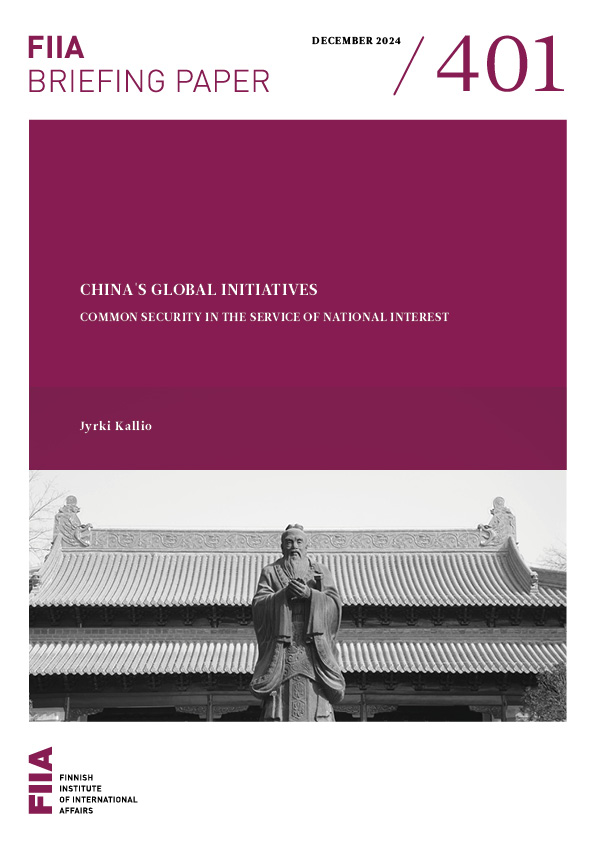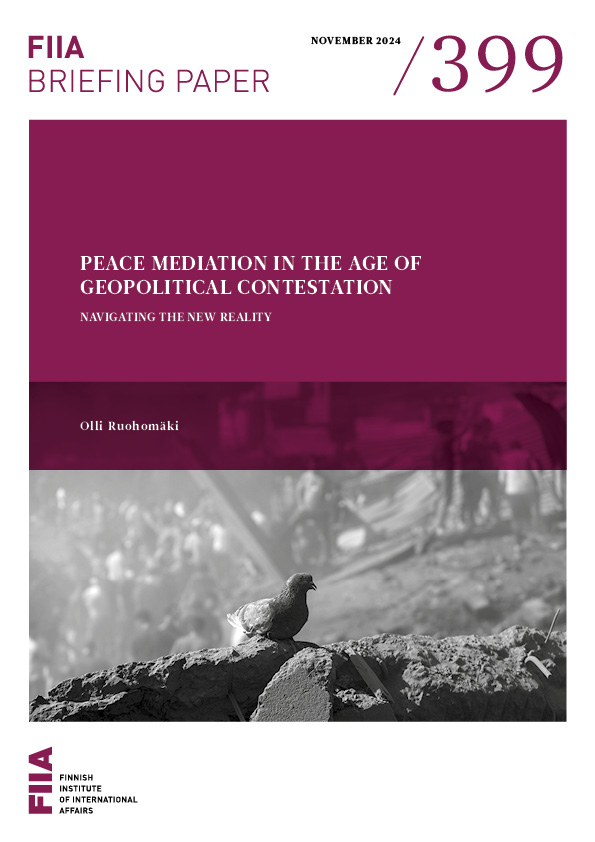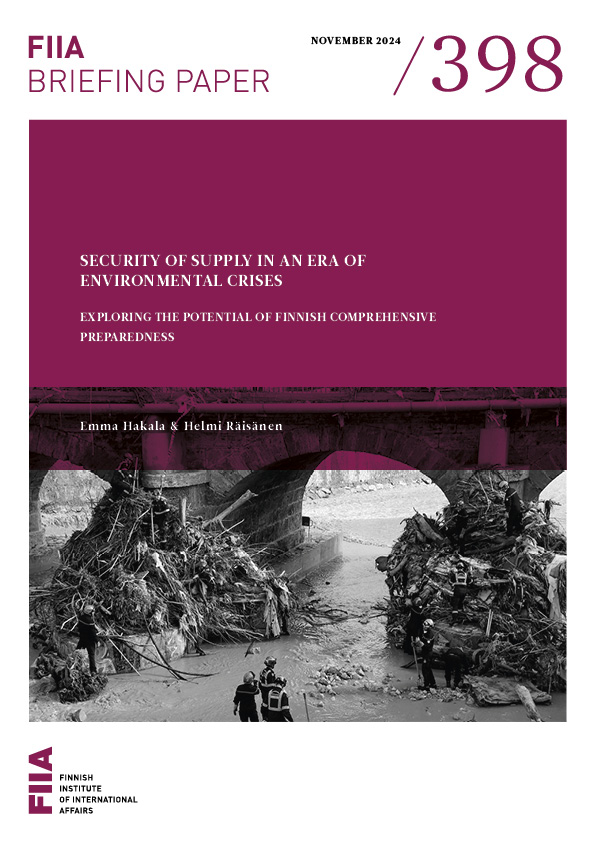- Great-power competition has brought geoeconomics to the forefront of strategic thinking in Washington D.C. The United States is well positioned to use coercive economic tools, particularly unilateral sanctions, in this game because of its structural advantages in the global economy and financial system.
- President Donald Trump and his administration have signalled a preference for the unilateral use of sanctions to excel in the competitive international geostrategic environment and confront “rogue regimes”.
- Wrangling between Congress and the White House over sanctions policy has also intensified since the 2016 presidential election.
- These systemic, policymaker-bounded and domestic-political factors have created a perfect storm in US sanctions policy. While the US may be able to pursue sanctions unilaterally in the short term, in the long run this may dissuade allies from cooperating and erode America’s structural advantages as other states resort to hedging.
Introduction
For the duration of its tenure, the administration of Donald Trump has been adamant that the international arena should not be viewed as a global community defined by positive-sum interactions, but as a realm of interstate competition. As the current National Security (NSS) and National Defence (NDS) Strategies argue, the pursuit of America’s national interests in such an environment necessitates excelling in the face of different competitive scenarios. This means harnessing America’s military and especially economic capabilities to check great-power challengers China and Russia, but also to confront so-called “rogue regimes” – including Iran, North Korea and Venezuela. The proliferation of economic coercion has been on display in the trade and financial restrictions that the Trump administration has used against such actors, as well as in import tariffs levied against both allies and adversaries. The situation is further complicated by Congressional activism in confronting adversaries, most notably Russia.
This Briefing Paper argues that a perfect storm is currently brewing in US foreign policy when it comes to the unilateral use of economic sanctions, broadly understood as “the manipulation of economic transactions for political purposes”.[1] This current tempest is the result of a peculiar collision of three proverbial weather fronts: systemic factors emanating from the increasingly competitive international arena, the worldviews of the current President and key players in his administration, as well as the contestation engulfing American domestic politics since the 2016 presidential election. The sanctions storm has not only come to pose challenges for America’s allies and partners, but also exposes potential longer-term implications for US global leadership and the international order writ large.
Economic coercion in a world of competition
Although the use of economic sanctions is hardly a novel phenomenon in US foreign policy, the recent uptick in the use of these instruments should not be dissociated from the broader shift in the dynamics of international order. In recent years it has become commonplace to argue that after a post-Cold War interregnum, the world is witnessing a “return of geopolitics” or a new advent of “great-power competition”.[2] On the one hand, Russia’s annexation of Crimea, subsequent actions in Eastern Ukraine, and meddling in the 2016 US presidential election have ushered in a new era of geostrategic wrangling between Moscow and the West. Concurrently, a hardening bipartisan consensus on confronting China as a rising near-peer competitor has emerged in Washington. Beijing’s increasing influence in its near abroad,
trade-distorting practices like intellectual property theft, cyber espionage and forced technology transfer, as well as a deteriorating human rights situation, have become a bipartisan concern.
This newfound focus on great-power competition has brought geoeconomics to the forefront of strategic
thinking in Washington. Defined as “the geostrategic use of economic power”,[3] geoeconomics provides a less risky way of conducting power politics, without having to resort to military instruments. America’s great-power rivals have also become more adept at using economic tools as a means of challenging the incumbent hegemon. Examples abound, whether one looks at Russia wielding its “energy weapon” against former Soviet Republics, or China acquiring strategic ports as debt payment in its neighbourhood. As the 2017 NSS bluntly states: “American prosperity and security are challenged by an economic competition playing out in a broader strategic context […] the United States will no longer turn a blind eye to violations, cheating, or economic aggression”.[4] Sanctions are a key component of this toolbox moving forward.
Unilateral sanctions as a coercive tool
Within the United Nations system, sanctions fall under the remit of measures not involving the use of armed force, which the Security Council – as per Article 41 of the UN Charter – can adopt to protect international peace and security. Especially since the end of the Cold War, the US has been a primus motor driving such multilateral UN sanctions against intransigent regimes like Iran, North Korea and Libya. After 9/11, the onset of the “global war on terror” led to a broadening in the targets of sanctions to non-state entities like Al-Qaeda and the Taliban. Many of these measures took the form of so-called “smart” or “targeted” sanctions, aimed at individuals’ (as opposed to states’) financial flows, assets, or ability to travel and acquire goods.
Concurrently, the US has become more adept at imposing sanctions unilaterally. In fact, the US is extraordinarily positioned for the use of economic coercion by virtue of the size of its economy, centrality as a hub of economic activity and global finance, as well as the predominance of the dollar in the global financial system. The Office of Foreign Assets Control (OFAC) of the US Department of the Treasury – tasked with administering, overseeing and enforcing US sanctions – also enjoys incomparable resources to carry out its tasks. This confluence of structural comparative advantages and resources allows the US to employ so-called secondary sanctions, “economic restrictions […] to inhibit non-US citizens and companies abroad from doing business with a target of primary US sanctions”.[5] Although such measures do not always enjoy widespread backing within the broader international community, they can still have tangible effects on third countries, their businesses and nationals.
The extraterritorial application of US secondary sanctions has thus placed it at loggerheads with its allies and partners from time to time. Even in the early 1980s, US sanctions against the Soviet Union placed European companies involved in a gas pipeline project in a precarious situation, but the Reagan administration backed down after an outcry and countermeasures from the Europeans. In 1996 two pieces of legislation, the Helms-Burton Act dealing with Cuba and the Iran and Libya Sanctions Act (ILSA), threatened foreign individuals and companies with, for instance, travel restrictions, financial liabilities and loss of access to the US market if found to be in violation of US sanctions. The EU responded with a “blocking statute”, which effectively prohibits European companies from complying with American extraterritorial sanctions, but a compromise with the Clinton administration rendered the statute redundant for two decades.
More recently, during Barack Obama’s tenure, OFAC imposed hundreds of millions of dollars in penalties on notable foreign banks for sanctions violations. This was indicative of a shift in the agency’s strategy from imposing less prominent penalties on smaller players towards creating a demonstrable deterrent effect by going after larger ones. There was also a substantial quantitative increase in the use of sanctions, when measured in terms of individuals and entities added to the Specially Designated Nationals and Blocked Persons List (SDN).[6] The Obama administration also set new precedents by utilising US influence over global financial institutions in its sanctioning efforts. The Iran case is indicative. Starting in 2009, Congress and the White House came together to enact legislation that would prohibit access to the US for any foreign banks found to have been dealing with those Iranian financial institutions blacklisted by the US. In 2012, together with its European allies and partners, the Obama administration also utilised leverage over the Belgium-based Society for Worldwide Interbank Financial Telecommunication (SWIFT) to shut out certain Iranian banks from the financial messaging service, a drastic move given SWIFT’s centrality in the global banking system.[7]
At the time, the US approach towards Iran enjoyed international support, especially from America’s European and global allies. Yet, by employing such tools, the Obama administration created a template that could be utilised by a future US president in a situation where international backing for US-imposed sanctions was not forthcoming. Perhaps sensing such troubles ahead, Obama’s Secretary of the Treasury Jacob Lew argued for the prudent use of secondary sanctions to avoid antagonising allies, destabilising global markets and undermining America’s global leadership in the economic realm.[8]
The “Trump effect” and economic coercion
Tightening geostrategic competition has led states to up their game in the employment of economic tools to pursue strategic aims, while the seeds for the unilateral use of sanctions have been sown by past administrations. Still, the sanctions storm has reached fever pitch during Donald Trump’s tenure.
Trump’s rhetoric and policies reveal that he is a staunch believer in economic strong-arming, whether in the form of sanctions or tariffs. In fact, the president appears to adhere to such beliefs on both an instrumental and an ideological level. He regards the United States as well positioned for the successful use of economic coercion, and has no moral qualms about using such tools. Trump also thinks about winning in profoundly zero-sum terms, and sanctions fit remarkably well with his penchant for operating disruptively and spontaneously. As the American sanctions enterprise provides the executive with considerable freedom of manoeuvre, the President can impose these measures swiftly, without having to worry about advance notification or judicial review.[9]
Despite manifold reports of dysfunction inside the current administration, a shared approach to the use of coercive economic tools has emerged amongst other key players. This is partly due to personnel changes, as Trump has gradually managed to surround himself with advisors who are amenable to a more unilateralist and transactionalist outlook. Current Secretary of State Mike Pompeo and former National Security Advisor John Bolton have both endorsed the President’s inclinations when it comes to issuing threats and using coercive instruments in the economic domain. Trump’s trade team reinforces this impression of hawkishness. Trade Representative Robert Lighthizer is a known critic of the global institutions of free trade, Assistant to the President and Director of the Office of Trade and Manufacturing Policy Peter Navarro is a noted supporter of import tariffs against China, while Treasury Secretary Steven Mnuchin has reportedly been very active on national security questions and sanctions. Commerce Secretary Wilbur Ross and economic advisor Larry Kudlow have also walked the Trumpian line when it comes to economic strong-arming.
The Trumpian approach in practice – the case of Iran
As early as its first year in office, the Trump administration added over 1,000 entities and individuals to the SDN list. This marks a 30% increase in designations when compared with Obama’s final year in office.[10] There is a concomitant qualitative change afoot as well. The Trump administration has pursued forceful comprehensive sanctions when dealing with intransigent actors, the most recent example being the full-scale economic embargo of Venezuela.
Perhaps nowhere has the Trump administration’s willingness to utilise economic sanctions unilaterally been clearer than in the case of Iran. Since announcing the US exit from the Iran nuclear deal (Joint Comprehensive Plan of Action; JCPOA) in May 2018, the President has authorised increasingly stringent sanctions as part of a “maximum pressure” campaign to thwart the Islamic Republic’s nuclear programme and destabilising regional behaviour.
By November 2018, the US had reimposed the sanctions that had been lifted after the JCPOA came into effect. These measures cover, for instance: Iran’s acquisition of dollars and precious metals; purchase and sale of Iranian rials; Iran’s automotive industry; Iranian sovereign debt; insurance and financial messaging; the country’s central bank and banking sector; as well as petroleum, petrochemical and metal industries. The sanctions are designed to allow the US authorities to take a range of measures against non-US persons and financial institutions found to be violating the sanctions, including fines, restrictions on market access, blocks on financial services, and denial of visas. The sanctions snapback on 5 November represented the largest one-off designation to the SDN list in history, with the addition of over 700 persons and entities.[11] SWIFT also bowed to US pressure and agreed to cut off Iranian banks designated by the US from the messaging system.
As tensions between the US and Iran have escalated in 2019, the Trump administration has ratcheted up pressure. On 8 April, the US made an unprecedented move by designating the Islamic Revolutionary Guard Corps a Foreign Terrorist Organization, the first time this has been done with respect to a part of another government. On 2 May, the US ended remaining sanctions waivers for imports of Iranian oil, and thus signalled a willingness to stifle Tehran’s most important source of revenue. On 8 May, after Iran announced that it would cease complying with two provisions of the nuclear deal that place limits on uranium and heavy water stockpiles, the US announced a new round of sanctions on the iron, steel, aluminium and copper sectors. Over the summer, following attacks on tankers in the Gulf region and the shooting down of an American drone, the Trump administration also announced targeted sanctions against Supreme Leader Ayatollah Ali Khamenei and foreign minister Mohammad Javad Zarif.
The Trump administration has thus gone well beyond the stringent sanctions that were in place prior to the successful negotiation of the JCPOA in 2015, but this time around America’s maximum pressure campaign lacks broad international support. The Europeans have been eager to save the agreement as a lowest-common-denominator compromise with Iran, and maintain that prior to the US withdrawal the deal had been working as intended. Alongside amplified regional instability in the Gulf, of particular concern for the EU and its member states has been the threat that secondary US sanctions pose for European companies and individuals.
Beyond seeking to keep diplomatic lines of communication open to de-escalate the situation, Europe has responded to US secondary sanctions on two fronts. On the one hand, the EU has rejuvenated the 1996 Blocking Statute, prohibiting European companies from complying with US secondary sanctions and allowing them to recover damages caused by extraterritorial application. On the other hand, the three European state parties to the nuclear agreement – France, Germany and the UK – have set up a special purpose vehicle (SPV) designed to facilitate trade with Iran. This mechanism, called the Instrument for Supporting Trade Exchanges (INSTEX), is now operational, but at least initially will be used to facilitate trade in humanitarian goods like food and medicine.
So far, the European measures have been insufficient to persuade companies to continue trade with and operations in Iran. Firms are concerned about their access to US markets and the financial system, not to mention the prospect of substantial penalties. Over the past year, many major European companies have wound down their operations, and EU-Iran trade has fallen sharply. The climate of uncertainty created by US sanctions makes them doubly problematic for European companies. Navigating the complexity of American sanctions regulations remains a challenge, and the prospect of fluctuation in sanctions makes predicting future business prospects extremely tricky. In addition, OFAC has considerable discretion when dealing with sanctions violations, so doubt remains over exactly how it will ultimately enforce the sanctions. However, the Trump administration has signalled that it would pursue an aggressive line in the future.[12] The US has therefore managed to erect a viable deterrent that dissuades firms from doing business with Iran, indicative of how the US may weaponise its financial and economic might in other cases in the future.
Congressional activism in sanctions
One further component of the sanctions storm has garnered notable attention during Trump’s tenure in the White House. Inter-branch tensions have assumed increased relevance, as Congress has enacted sanctions legislation that potentially conflicts with the priorities of the executive.
Such contestation between Capitol Hill and the White House over sanctions has a long history. This can be attributed to the differing foreign-policy-related incentives of the legislative and executive branches. Members of Congress are less attuned to the negative side effects that sanctions may unleash on the international scene, and have utilised sanctions legislation for scoring points with domestic constituents. The White House, in contrast, has been wary of problems that rigid sanctions legislation can create for US foreign and economic policy in an interconnected world, and the limits they can place on diplomatic wiggle room. These concerns animated, for instance, the battles between President Obama and Congress on Iran sanctions, as well as inter-branch differences over the design of Russia sanctions in the aftermath of the 2014 annexation of Crimea.[13]
In a rare show of bipartisanship in a polarised age, Congress passed the Countering America’s Adversaries Through Sanctions Act (CAATSA) in July 2017 with overwhelming (and veto-proof) majorities in both the House of Representatives and the Senate. This forced President Trump to grudgingly sign the bill into law in August of that year. CAATSA lays out sanctions on Iran, North Korea and Russia, but the secondary sanctions with respect to the last of these have drawn most public attention. Beyond codifying existing executive orders on Russia sanctions, CAATSA contained some notable additions. Section 231 of the Act deals with the Russian intelligence and defence sectors, and subjects third countries and their nationals to penalties if they engage in transactions with said entities. Section 232, in turn, deals with the Russian energy sector. Although these sanctions on energy are discretionary, it makes it possible for the US to target third-country companies involved, for instance, in Russian pipeline projects. CAATSA also makes it more difficult for the president to waive sanctions on national security grounds by mandating a Congressional review of such decisions.
President Trump’s room for manoeuvre in tailoring sanctions with respect to Russia has thus been circumscribed. Although driven in part by doubts regarding the president’s willingness to stand up to the Kremlin, this partial sidelining of the executive poses potential problems for US sanctions policy. A more activist Congress makes it more difficult for the executive to coordinate with international partners, and there have already been episodes where European anxieties over implementation of CAATSA have caused cracks in transatlantic cooperation. One pertinent illustration is the lingering threat of sanctions against European companies involved in the Nordstream II pipeline project, while a proposed new bill called Defending American Security from Kremlin Aggression Act (DASKA) would threaten new large-scale energy forays with mandatory US secondary sanctions. Another example was the ill-fated US decision to sanction Russian oligarch Oleg Deripaska – and companies he controlled, including aluminium giant Rusal and its parent company En+. The measure was initially undertaken with little transatlantic consultation, and threatened a profound impact on metal industries worldwide.[14]
In addition, when it comes to using sanctions as an integral part of a viable foreign-policy strategy, a Congress bent on taking a hard line and tying the President’s hands can hamper the efficacy of the whole sanctions enterprise. When sanctions relief requires a Congressional review process, it becomes more difficult for the executive to make credible assertions that it can reward the target for behavioural change. This, from the standpoint of the sanctioned state, may work as a disincentive to change behaviour and render sanctions less potent.[15] Congressional activism thus adds a layer of uncertainty to US sanctions policy – one that has been further exacerbated in the Trump era.
Conclusion
At present, a collision of currents flowing from the systemic level, the White House and Capitol Hill have set in motion a sanctions storm of significant proportions. While it is still too early to assess the duration or ultimate damage caused, it is possible to offer some preliminary conclusions.
It is becoming abundantly clear that economic instruments, including sanctions, will comprise a substantial portion of the tools that the US will harness to excel in a newfound era of great-power competition. The Trump administration, in line with the president’s worldview and (increasingly) the views of his advisors, has assumed a profoundly confrontational posture in this game. As the Iran case illustrates, the US is more willing than before to utilise sanctions in pursuit of foreign-policy priorities, with little regard for the views of allies and partners or the broader international community. The Trump administration’s infatuation with coercive economic instruments – the proverbial “stick” – may even be crowding out other ways of exercising influence, including diplomatic forays and economic “carrots”. In this vein, the administration has also been criticised for using sanctions as a substitute for a coherent foreign-policy strategy.[16] Congress has added another layer of complexity to the situation by pushing for more stringent secondary sanctions. Although designed to send a strong message to US adversaries, these reduce the room for manoeuvre of the White House and risk further antagonising America’s allies and partners.
The sanctions storm has different implications for America’s global role depending on the assumed time horizon. In the short term, in cases where the sanctioned country is not a relevant player in the global economy, the US can continue to utilise sanctions with little regard for the views of other states. This is a function of its abundant structural advantages. In the longer term, however, the problems associated with the overuse of sanctions may become more pressing, especially if the US should utilise them too vigorously against bigger players in the global economy, like China and Russia. One possible future scenario is reduced cooperation from allies and partners. Too aggressive a policy may erode the willingness of others, notably the EU, to go along with Washington in pursuing sanctions to confront arising threats. Another potentiality is increased hedging. Countries may start to look for alternatives to the US dollar, envisage more mechanisms in the vein of the INSTEX special purpose vehicle to circumvent secondary sanctions, or even decouple themselves from global supply and value chains to decrease their vulnerability to American economic strong-arming.
The unilateral overuse of sanctions may thus have systemic implications, and in the process erode the very structural advantages that the US sanctions enterprise is built on. Like other controversial aspects of President Trump’s foreign policy – whether climate policies or verbal tirades against allies and multilateral institutions – overreliance on economic coercion threatens a key building block of US power, namely America’s legitimacy as a custodian of the international order writ large. For the future, then, the key question is how judiciously the current presidential administration in the year(s) to come, and the administrations of the future, will utilise sanctions.
Endnotes
[1] Joseph S. Nye, The Future of Power (New York: PublicAffairs, 2011), 71.
[2] Walter Russell Mead, “The Return of Geopolitics: The Revenge of the Revisionist Powers,” Foreign Affairs 93, no. 3 (2014): 69–79; Uri Friedman, “The New Concept Everyone in Washington Is Talking About,” The Atlantic, 2019, https://www.theatlantic.com/politics/archive/2019/08/what-genesis-great-power-competition/595405
[3] Mikael Wigell, “Conceptualizing Regional Powers’ Geoeconomic Strategies: Neoimperialism, Neomercantilism, Hegemony and Liberal Institutionalism”, Asia Europe Journal 14, no. 2 (2016): 135–151.
[4] Donald J. Trump, “National Security Strategy of the United States of America,” White House, 2017, https://www.whitehouse.gov//data/wordpress/htdocs/wp-content/uploads/2017/12/NSS-Final-12-18-2017-0905.pdf.
[5] Jeffrey A. Meyer, “Second Thoughts on Secondary Sanctions,” Pennsylvania Journal of International Law 30, no. 3 (2009): 905; emphasis added.
[6] Joy Gordon, “Extraterritoriality: Issues of Overbreadth and the Chilling Effect in the Cases of Cuba and Iran,” Harvard International Law Journal (Online) 30, 2016: 6–7; Bryan R. Early, “Deterrence and Disclosure: The Dual Logics Promoting U.S. Sanctions Compliance,” Center for a New American Security, 2019, https://www.cnas.org/publications/commentary/deterrence-and-disclosure-the-dual-logics-promoting-u-s-sanctions-compliance; Peter Harrell, “Is the U.S. Using Sanctions Too Aggressively?,” Foreign Affairs, 2018, https://www.foreignaffairs.com/articles/2018-09-11/us-using-sanctions-too-aggressively?cid=int-fls&pgtype=hpg
[7] Richard Nephew, The Art of Sanctions: A View from the Field (New York: Columbia University Press, 2017), 77; Ellie Geranmayeh and Manuel Lafont Rapnouil, “Meeting the Challenge of Secondary Sanctions,” in Strategic Sovereignty: How Europe Can Regain the Capacity to Act, ed. Mark Leonard and Jeremy Shapiro (Berlin: European Council on Foreign Relations, 2019), 65, 75.
[8] William J. Burns and Jacob J. Lew, “U.S. Treasury Secretary Jacob J. Lew on the Evolution of Sanctions and Lessons for the Future,” Carnegie Endowment for International Peace, 2016, https://carnegieendowment.org/2016/03/30/u.s.-treasury-secretary-jacob-j.-lew-on-evolution-of-sanctions-and-lessons-for-future-event-5191.
[9] Carol Morello, “Trump Administration’s Use of Sanctions Draws Concern,” Washington Post, 2018, https://www.washingtonpost.com/world/national-security/trump-administrations-use-of-sanctions-draws-concern/2018/08/05/36ec7dde-9402-11e8-a679-b09212fb69c2_story.html; Devika Hovell, “Unfinished Business of International Law: The Questionable Legality of Autonomous Sanctions,” AJIL Unbound 113 (2019): 140–45, https://doi.org/10.1017/aju.2019.20.
[10] Gibson Dunn, “2017 Year-End Sanctions Update,” 2018, https://www.gibsondunn.com/2017-year-end-sanctions-update/.
[11] Gibson Dunn, “2018 Year-End Sanctions Update,” 2019, https://www.gibsondunn.com/2018-year-end-sanctions-update/.
[12] Ellie Geranmayeh and Manuel Lafont Rapnouil, “Meeting the Challenge of Secondary Sanctions,” in Strategic Sovereignty: How Europe Can Regain the Capacity to Act, ed. Mark Leonard and Jeremy Shapiro (Berlin: European Council on Foreign Relations, 2019), 65; Gibson Dunn, “2018 Year-End Sanctions Update,” 2019, https://www.gibsondunn.com/2018-year-end-sanctions-update/.
[13] Jordan Tama, “So Congress Is Challenging the President about Sanctions? That Has a Long History,” Washington Post, 2017, https://www.washingtonpost.com/news/monkey-cage/wp/2017/06/16/so-congress-is-challenging-the-president-about-sanctions-that-has-a-long-history/?utm_term=.20aeef8d3c3e; Jordan Tama, “Bipartisanship in a Polarized Age: The U.S. Congress and Foreign Policy Sanctions,” American University School of International Service Working Paper Series, no. 2 (2015), https://doi.org/10.2139/ssrn.2553401.
[14] Jarrett Blanc and Andrew S. Weiss, “U.S. Sanctions on Russia: Congress Should Go Back to Fundamentals,” Carnegie Endowment for International Peace, 2019, https://carnegieendowment.org/2019/04/03/u.s.-sanctions-on-russia-congress-should-go-back-to-fundamentals-pub-78755.
[15] Daniel W. Drezner, “Why the Congressional Push to Sanction Russia Worries Me,” Washington Post, 2017, https://www.washingtonpost.com/posteverything/wp/2017/06/14/why-the-congressional-push-to-sanction-russia-worries-me/.
[16] See e.g. David Mortlock and Brian O’Toole, “US Sanctions: Using a Coercive Economic and Financial Tool Effectively”, Atlantic Council Issue Brief, 2018, https://www.atlanticcouncil.org/images/publications/US-Sanctions-Using-a-Coercive-Economic-and-Financial-Tool-Effectively1.pdf.








